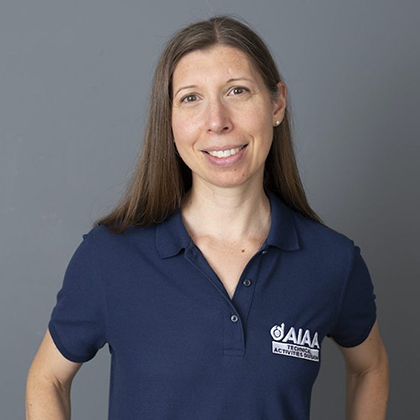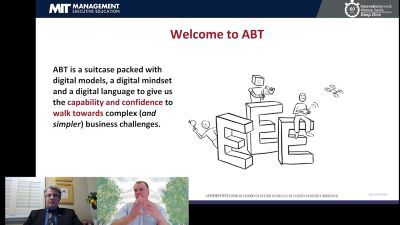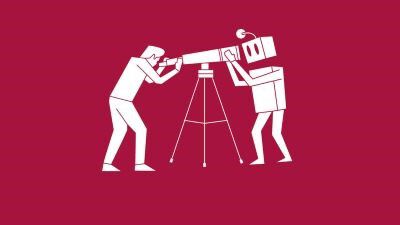Outer space is closer to home than ever before, with big implications for the future of business. According to the World Economic Forum, by 2035, the value of the global space economy will reach $1.8 trillion. For context, said economy was worth $630 billion in 2023, and expected growth (3x) will well surpass that forecasted for the GDP.
Space is poised to propel business growth on Earth across industries. For example:
- Agriculture is leveraging satellite data to improve efficiency and productivity.
- In telecommunication, space-based systems enable more reliable communication networks, improved logistics, and even advancements in disaster response.
- The energy sector benefits from satellites detecting leaks in oil pipelines and offshore rigs, while renewable energy companies use space-based weather data to optimize solar and wind power generation.
- The financial services sector is increasingly relying on space technologies for secure, real-time data transmissions that enhance global transactions, improve market analysis, and safeguard against cybersecurity threats.
- In the transportation industry, space-driven innovations in global positioning systems (GPS) enable more precise navigation for ships, planes, and autonomous vehicles, reducing fuel consumption and improving efficiency.
- Pharmaceutical companies are exploring microgravity environments aboard the International Space Station to develop new drugs and materials.
- For the U.S. military, space technologies and discovery have wide-ranging implications for national security.
As space technologies continue to evolve, their applications across industries will only expand, fueling innovation and economic growth in unexpected ways.
Business Applications of Space Exploration (BASE) is an immersive, five-day course on the MIT campus designed to help individuals and teams define business strategies, workforce capabilities, and tactical toolkits for present and next-era space exploration. This groundbreaking, application-based course explores the intersection of space exploration and business and presents a cutting-edge framework—created by the course faculty—for evaluating business opportunities on Earth and in the “forever frontier” of space that are currently unimagined or difficult to measure. Participants will explore the economics, innovation, policy, and entrepreneurship surrounding space exploration, applying frameworks and models to real-world business problems and scenarios.
This course is also highly relevant for leaders of ambitious, visionary organizations in other industries seeking to accelerate value creation under intense pressure and amid extraordinary technological change.
BASE is structured around the following key themes:
- Introduction to Space Exploration Today and Near-Term Pathways: Examine the history and evolution of space exploration and business models, focusing on key milestones from 1957-2025. Understand the recalibrated roles and responsibilities of government agencies, private companies, and international players in space exploration, and analyze where we are today and where we’re heading by 2057. Key frameworks for translating the value of Space Exploration across our industries and organizations will be introduced.
- Economics of Space Exploration: Gain insights into the economic landscape of space exploration. We will apply cost-benefit analysis models, the evolution of business models (from government to private and public-private partnerships), and the economic impact of space exploration on job creation and technological advancement. Participants will explore future funding sources as the space industry expands.
- Space Technology and Innovation: Explore the critical technologies driving space exploration, including AI, robotics, extended reality (XR), and computing. Learn how these innovations are creating value in space exploration and can provide ´spinoff´ value in your industry and organization.
- Translating Space Exploration to Organizational Exploration: Understand and apply key frameworks that enable your organizations to catalytically create new futures efficiently and effectively today.
- Space Exploration Applications and Markets: Examine the broad applications of space exploration technology, from lunar marketplaces to remote sensing and interplanetary communications. Understand the current and emerging markets for space-based products and services and analyze key players in these markets.
- Space Exploration Workforce Principles & Culture: Participants will learn key principles and cultural elements of space exploration entrepreneurship, exploring the skills required for success, including creativity, collaboration, and critical thinking. This module provides case studies on space entrepreneurship failures and successes to apply lessons learned to current experiments and ventures we can conduct in each one of our organizations.
- Activating an Exploration Mindset in Your Company: Understand and apply the frameworks that will enable your teams to operate with an exploration-forward mindset to identify and create sustainable new impact and value in your organization and networks.
- Leadership, Ethics, and Sustainability of Space Exploration: Explore the ethical and sustainability considerations of space exploration, from environmental impacts to societal responsibilities. Discuss the benefits of space exploration for society and how ethics and sustainability shape the future of space and its business applications.




















